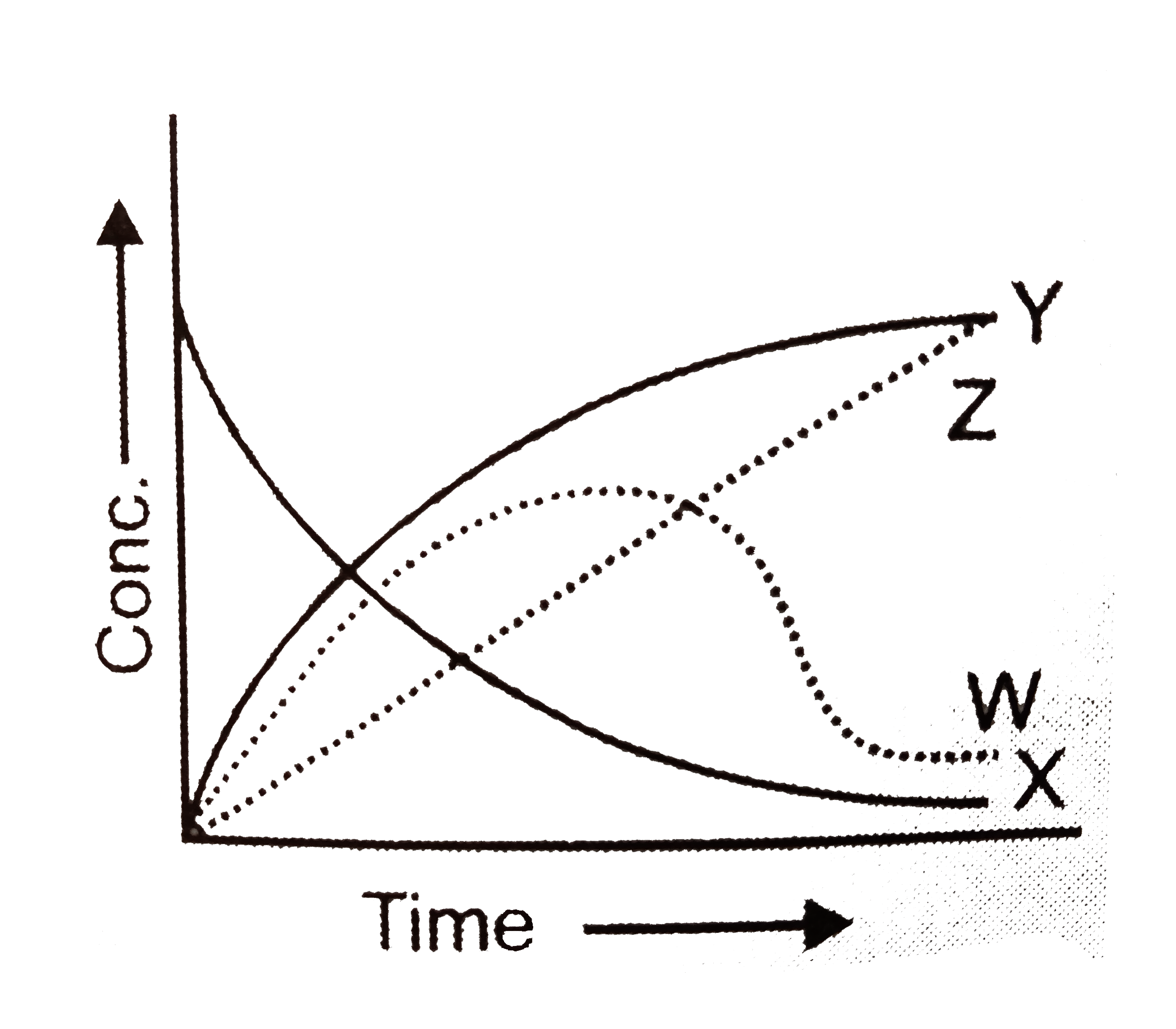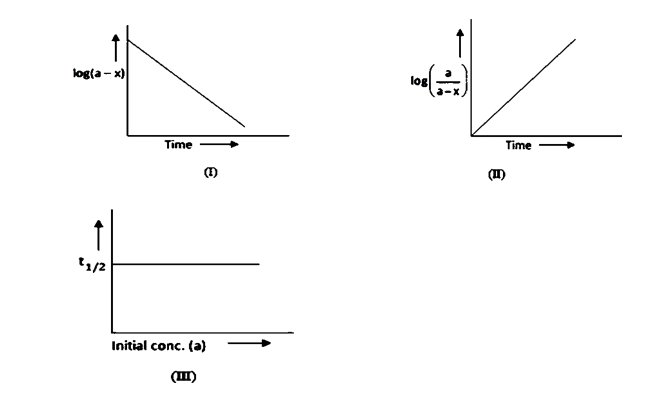Consider the following case of competing 1st order reactions.
![Consider the following case of competing 1^(st) order reactions. After the start of the reaction at t=0 with only A,the [C] is equal to the [D] at all time.The time in which all three concentrations wil be equal is given by :](https://d10lpgp6xz60nq.cloudfront.net/physics_images/RES_PHY_RK_JA_C04_E01_193_Q01.png)
After the start of the reaction at t=0 with only A,the [C] is equal to the [D] at all time.The time in which all three concentrations wil be equal is given by :
t=12k1ln3
t=12k2ln3
t=13k1ln2
t=13k2ln2
The correct Answer is:A,B
k1=k2
⇒23rd of A has reacted for [A] =[C]=[D]
∴K1+k2=1tIn[A]013[A]0
⇒t=1k1+k2In3=12k1In3=12k2In3
Topper's Solved these Questions
Similar Questions
Knowledge Check
- Question 1 - Select One
In a first order reaction fraction of the total concentration of the reactant varies with time 't' is equal to
Ae+ktB10+0.434ktC12−nDe−kt - Question 2 - Select One
If for any raction , th rate constant is equal to the rate of the reaction at all concentrations, the order is
A0B2C1D3 - Question 3 - Select One
In a 1st order reaction, reactant concentration C varies with time t as:
A1/C increases linearly with tBlog C decreases linearly with tCC decreases with 1/tDlog C decreases with 1/t
In a 1st order reaction, reactant concentration C varies with times t as:
View SolutionConsider the following in respect of zero order reaction.
I. t1/2 is directly proportional to the initial concentration
II. Time taken for the completion of the reaction is twice its t1/2
III Concentration of the reactant decreases linearly with time
Which of the statements given above are correct ?View SolutionFor the second order reaction, concentration (x) of the product at time t starting with initial concentration [A]o is :
View SolutionFor the reaction, A+B→C+D. The variation of the concentration of the products with time is given by the curve:
 View Solution
View SolutionFor a first order reaction : A→nB (with n-possibly fractional), the concentration of the product varies with time as (A0 is the concentration of A at time t=0).
View Solution

